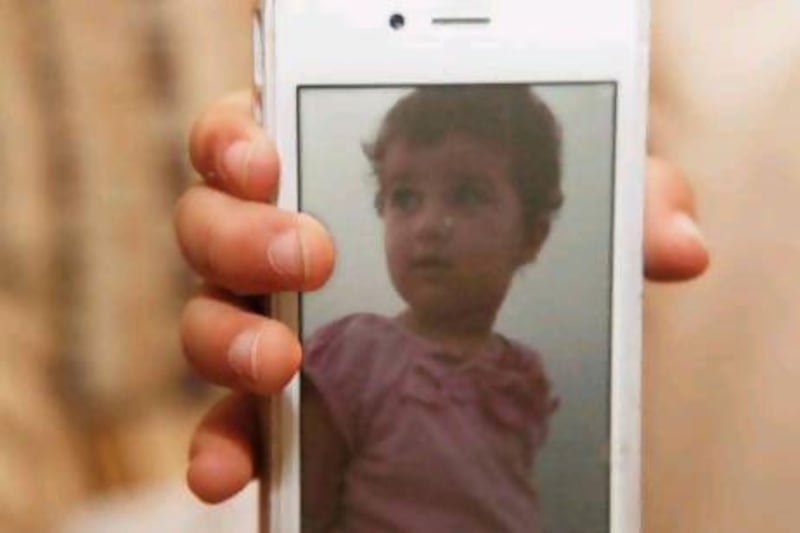Not enough is being done to warn parents about basic safety hazards in the home. And the few safety programmes that do exist are far too small, according to Dr Yasser Isa Al Nuaimi, the director of Ras Al Khaimah's Ministry of Health.
Dr Al Nuaimi's views follow the death on Friday of a 13-month-old girl in RAK. She drowned after crawling into the bathroom of her family home, and falling into a partially filled bucket of water. She had been left unattended.
Part of the problem, said Dr Al Nuaimi, is deciding who the advice should be aimed at. "While there are ongoing efforts there to educate people, here in the UAE many of us depend on domestic help," he said. "Sometimes we focus on the education of the parents and we forget to educate the caregivers.
"They may come from a background where they are much less educated, so now it's the right time to focus not only on the parents, but on those people who help the parents. We need to do something on a bigger scale. Right now, we are not doing enough."
Water safety in particular needs immediate, and constant, attention. A study at UAE University identified drowning as the third leading unintentional-?injury death among under-14s. Between 2000 and 2006, 76 children drowned.
However, that was dwarfed by injuries, which were identified as having caused the deaths of 746 children.
Worldwide, drowning is the third biggest cause of accidental death among children and adults, accounting for 7 per cent of all trauma-related deaths, according to the World Health Organisation.
The UAEU study, presented at last year's world conference on drowning prevention, concluded that poor record-keeping by the Ministry of Health had a detrimental effect on the validity of the death records and on future prevention policies.
However, Dr Taisser Atrak, the chairman of paediatrics and chief of neonatology at Mafraq Hospital, said the UAE was on the right path. "The UAE is doing probably more than anywhere I have seen in the region, with regards to informing people about safety at home," he said. "But while there is a lot of awareness in, for example, Abu Dhabi, it's not enough. We need more people to get involved and do more public education."
More evidence-based data would help, he added.
Over the past year, there has been a spate of drownings and other preventable fatalities among children. In April 2011, the eight-year-old daughter of Indian singer K S Chitra drowned after falling into a swimming pool at a villa in Dubai.
In December, four children fell to their deaths in Sharjah in the space of just two weeks, prompting calls to educate parents on safety in high-rise homes.
Other cases included children being scalded in overheated baths, and swallowing deflated balloons.
The number one rule for parents is to watch their children, said Carmen Benton, a parenting educator at Lifeworks Counselling, in Dubai.
"No child under the age of six should ever be left unattended," she said. "Young children need constant supervision – not so much with regards to interfering in their play, but for the reason that no young child should be left in a room alone."
Leaving young children unattended is the main reason behind their resulting injuries, said Dr Fikri Abu-Zidan, the head of trauma at UAE University's medicine department.
"Children at this age have less co-operation," he said. "Their co-ordination is different and they are not aware of the environment around them, so they explore by touching. This is their normal method of gathering knowledge."
Parents should make sure bathtubs are always drained and toilet seats kept closed, added Dr Atrak.
However, the number of young patients with preventable injuries is dropping, he said. "I think we should continue what we are doing and keep it sustainable. We cannot just do one project then move on and do it again in one or two years. It is the responsibility of every single caregiver in society to continue working as a team to make a difference."





